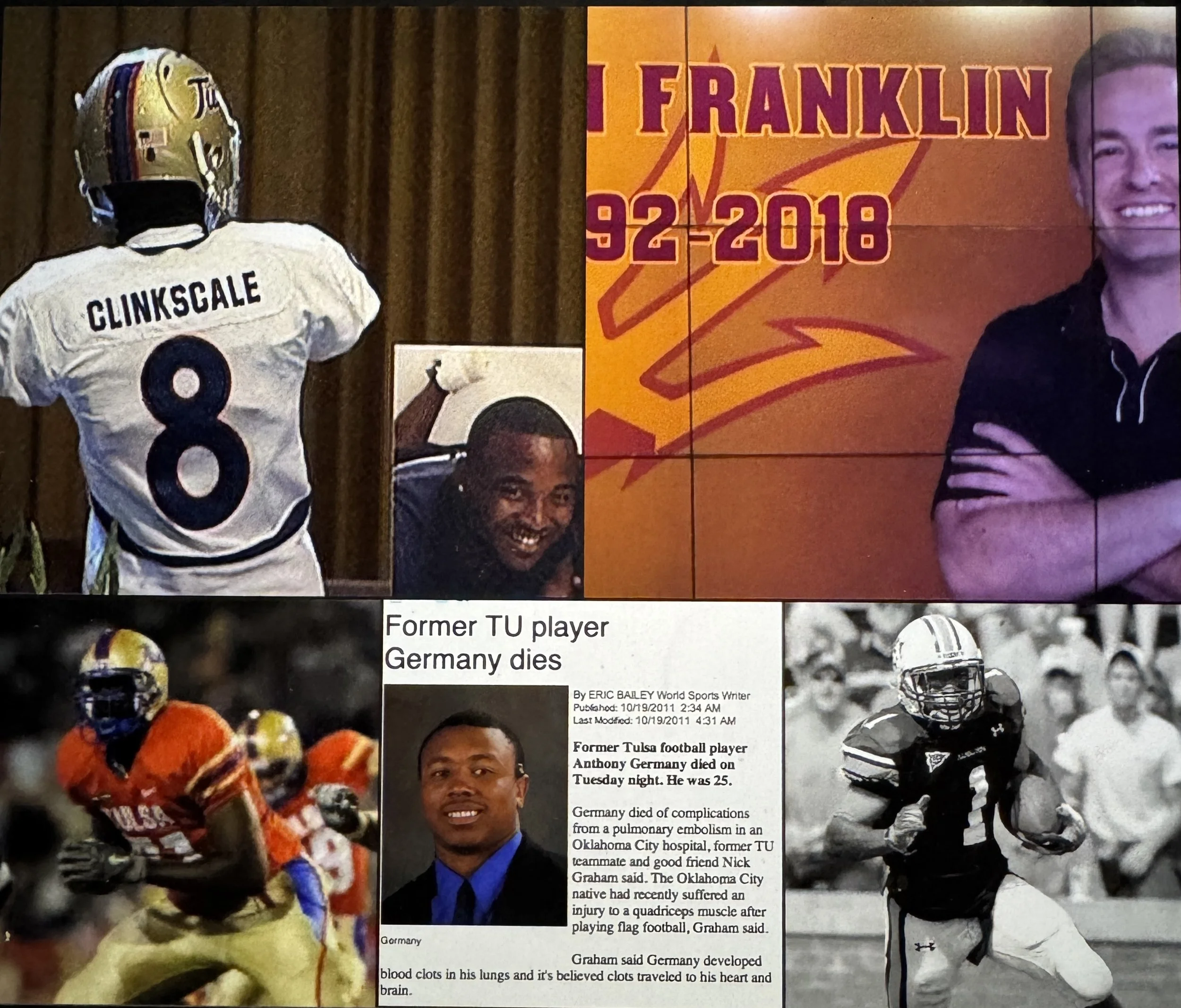The Losses the Scoreboard Doesn’t Show
The crowd was roaring one minute, then silent the next. Trainers ran to the field. Forty-five minutes passed before the stretcher moved.
I stood there whispering, “Please, let him get up.”
That was the moment I realized football doesn’t just measure yards. It measures hearts. And sometimes, it breaks them.
The scoreboard told one story that day. But the hardest losses I’ve ever known didn’t happen on the field.
I was married to the coach, but I chose the role of Team Mom. On game days I brought cookies and hugs. I fed them, cheered them, and loved them. My home was always open for team dinners, recruiting nights, and holidays when players couldn’t get home. I can still hear the sound of my front door swinging open, cleats clicking on the tile, and someone yelling, “Hey, Miss Penni, what’s for dinner?”
I will never forget the night one of our linemen ate eleven steaks at my table. We laughed until our sides hurt. Those were my boys, and I hope I was their safe place, their celebration and comfort in one breath.
There is nothing like the rhythm of a college football Saturday. The roar, the band, the smell of grass after a touchdown. But beneath that joy, life sometimes calls an audible none of us are ready for.
The first one we lost was Dale in 2006. He was strong, funny, and full of light. He died suddenly from complications of sickle cell trait, something most people barely knew about at the time. The week after, we lined up against Army. The field was full, but my heart felt empty.
Five years later, while we were at Pitt, came the cruelest season of all. We lost Wilson, George, and Anthony, three young men who were like family, all within the same year.
Wilson had fought a four-year battle with lymphoma. He was brave, joyful, and full of light even on his hardest days. He had already won ESPN’s National Courage Award, but the truth is he taught courage to everyone who knew him. Watching him walk across that stage, frail but undefeated in spirit, reminded us that courage isn’t measured in tackles or touchdowns but in the willingness to keep showing up.
George was a gentle giant with a wife, Coco, a two-year-old son, and another baby on the way. George had the best smile, the kind that could light up a locker room or calm a crowd after a loss. He was boxing when his body suddenly gave out. Sickle cell trait again. There is no playbook for that kind of loss. Only faith, only family, only prayer.
Anthony was my baby. He tore a muscle playing flag football, and a blood clot ended his life before any of us could believe it. Anthony gave the best hugs, the kind that made you feel safe in the middle of chaos. I still remember the moment I got the call. There are no words for that kind of silence.
And then came Jason Franklin. His death was different, but the pain just as sharp. Jason passed away a couple of years after he stopped playing. It’s hard to imagine a light so bright could ever dim. He died by suicide, a heartbreak brought on by the kind of invisible injuries we are only beginning to understand today. The emotional toll of concussions and repeated hits, those mini traumas that add up over years, left scars we couldn’t see.
Nearly 50,000 people in our country die by suicide each year. It is like a new cancer that keeps growing, quietly spreading through communities, locker rooms, and families. One day, I hope we care enough to invest in saving minds the way we fight to save bodies. No player, no family, should ever carry that kind of pain alone.
As a sport, we have come a long way. We talk more about concussions, cardiac screenings, and mental health. But we still have work to do. We need better education about conditions like sickle cell trait, and we must face the truth about brain injuries and the emotional fallout that can follow. We need to see beyond the helmets and remember that every number on that field belongs to someone’s child.
All of their deaths taught us so much. We have learned an immense amount, not only about why they passed, but how we can prevent it. Because of them, we now have sickle cell trait screenings and mental health check-ins that are saving lives. Their legacy lives on through every player who is protected, every test that is run, and every conversation that begins before it is too late.
Sometimes the loss teaches us more than a win. It reminds us to be grateful that we knew them, and to understand that their legacy is not their death, but the life that they lived.
Their stories still play in my heart, and always will, long after the final whistle.
The player who went down on the field in that Army game eventually got back up. It was our first game after losing Dale, when he stood, I felt the whole world exhale. Watching him rise reminded me how fragile life is, and how precious every breath can be. None of us knows how many days we get, but we all have the power to make them count.

